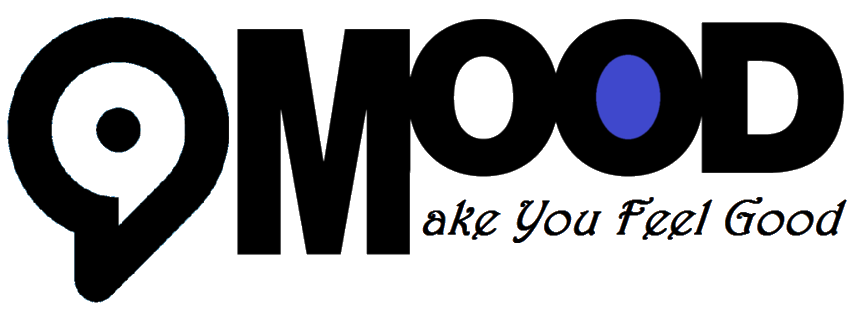Losing weight isn’t just about eating less and exercising more. While diet and exercise are essential, your hormones play a crucial role in weight management—and ignoring them could be the reason why you’re struggling to shed those extra pounds.
 Image: Hormones and weight loss
Image: Hormones and weight loss
Hormonal imbalances can slow down your metabolism, increase fat storage, and even make you crave unhealthy foods. If you’ve been doing everything “right” but still not seeing results, it’s time to look at the 6 hormones that might be sabotaging your weight loss efforts.
1. Insulin: The Fat-Storing Hormone
Insulin is produced by the pancreas and helps regulate blood sugar levels. When you eat too many refined carbs and sugary foods, your body produces excess insulin. Over time, this can lead to insulin resistance, where your cells stop responding to insulin properly.
How Insulin Affects Weight Loss:
- High insulin levels promote fat storage, especially around the belly.
- Insulin resistance leads to constant hunger and sugar cravings.
How to Balance Insulin:
✅ Eat low-glycemic foods like vegetables, whole grains, and lean proteins.
✅ Avoid sugary drinks, processed foods, and excessive carbs.
✅ Incorporate intermittent fasting to improve insulin sensitivity.
2. Leptin: The Satiety Hormone
Leptin is responsible for telling your brain when you’re full. However, leptin resistance occurs when your brain no longer receives the signal, causing you to overeat.
How Leptin Affects Weight Loss:
- Leptin resistance makes you feel constantly hungry.
- Overeating leads to increased fat storage.
How to Balance Leptin:
✅ Prioritize high-fiber foods to keep you full longer.
✅ Reduce processed foods, which can interfere with leptin signals.
✅ Get enough sleep, as poor sleep increases leptin resistance.
3. Ghrelin: The Hunger Hormone
Ghrelin is the hormone that signals hunger. If your ghrelin levels are too high, you may feel hungry even when your body doesn’t need food.
How Ghrelin Affects Weight Loss:
- High ghrelin levels lead to constant cravings and overeating.
- Ghrelin spikes when you’re sleep-deprived, making it harder to control your appetite.
How to Balance Ghrelin:
✅ Get at least 7-9 hours of quality sleep every night.
✅ Eat protein-rich meals, as protein helps regulate ghrelin levels.
✅ Avoid extreme calorie restriction, which increases ghrelin production.
4. Cortisol: The Stress Hormone
Cortisol is released during stress. While it’s essential for survival, chronic stress leads to excess cortisol production, which promotes weight gain—especially around the belly.
How Cortisol Affects Weight Loss:
- Triggers emotional eating and sugar cravings.
- Increases fat storage, particularly in the abdominal area.
How to Balance Cortisol:
✅ Practice stress management (meditation, deep breathing, yoga).
✅ Limit caffeine and alcohol, which can spike cortisol.
✅ Engage in low-intensity exercise (like walking or stretching) to reduce stress.
5. Estrogen: The Fat-Storing Hormone for Women
For women, estrogen plays a significant role in body fat distribution. Both high and low estrogen levels can contribute to weight gain.
How Estrogen Affects Weight Loss:
- Too much estrogen leads to fat accumulation in the hips and thighs.
- Too little estrogen (especially during menopause) can slow metabolism.
How to Balance Estrogen:
✅ Eat cruciferous vegetables (broccoli, cauliflower, Brussels sprouts) to help regulate estrogen.
✅ Reduce processed foods and excess dairy, which may increase estrogen.
✅ Exercise regularly to help maintain hormone balance.
6. Thyroid Hormones: The Metabolism Regulators
Your thyroid gland produces hormones (T3 and T4) that regulate metabolism. If your thyroid is underactive (hypothyroidism), weight loss can be extremely difficult.
How Thyroid Hormones Affect Weight Loss:
- A sluggish thyroid slows metabolism, leading to weight gain.
- Low thyroid function causes fatigue, hair thinning, and cold intolerance.
How to Balance Thyroid Hormones:
✅ Get iodine-rich foods (seaweed, fish, eggs) to support thyroid function.
✅ Avoid excessive soy consumption, which may interfere with thyroid hormones.
✅ Consult a doctor for thyroid function tests if you suspect an imbalance.
Bonus: Testosterone: The Muscle-Building Hormone
Testosterone isn’t just for men—it’s important for women too! Low testosterone can lead to muscle loss, increased fat storage, and low energy.
How Testosterone Affects Weight Loss:
- Low testosterone reduces muscle mass, slowing metabolism.
- Leads to fat accumulation, especially around the belly.
How to Balance Testosterone:
✅ Include strength training in your workout routine to boost testosterone naturally.
✅ Eat healthy fats (avocados, nuts, olive oil) to support hormone production.
✅ Avoid excessive alcohol and processed foods, which can lower testosterone.
Final Thoughts: Take Control of Your Hormones to Lose Weight
If you’ve been struggling to lose weight despite your best efforts, hormonal imbalances might be the missing piece of the puzzle. Instead of focusing solely on calorie counting, pay attention to how your hormones affect your metabolism, hunger, and fat storage.
Quick Action Plan to Balance Your Hormones:
✅ Eat a nutrient-dense diet with plenty of protein, fiber, and healthy fats.
✅ Prioritize quality sleep to regulate hunger and stress hormones.
✅ Manage stress through meditation, yoga, or mindful activities.
✅ Exercise regularly, including both cardio and strength training.
✅ Consider seeing a doctor if you suspect a serious hormonal imbalance.
By addressing these seven key hormones, you can break through weight loss plateaus, boost metabolism, and finally achieve your fitness goals. Take control of your hormones, and your body will follow!
You may also like,
- 8 Superfoods to Boost Your Immunity This Winter: Stay Healthy and Strong
- 10 Amazing Health Benefits of Aloe Vera
- How to Lose Weight in Your Face
Discover more from 9Mood
Subscribe to get the latest posts sent to your email.


























0 Comments